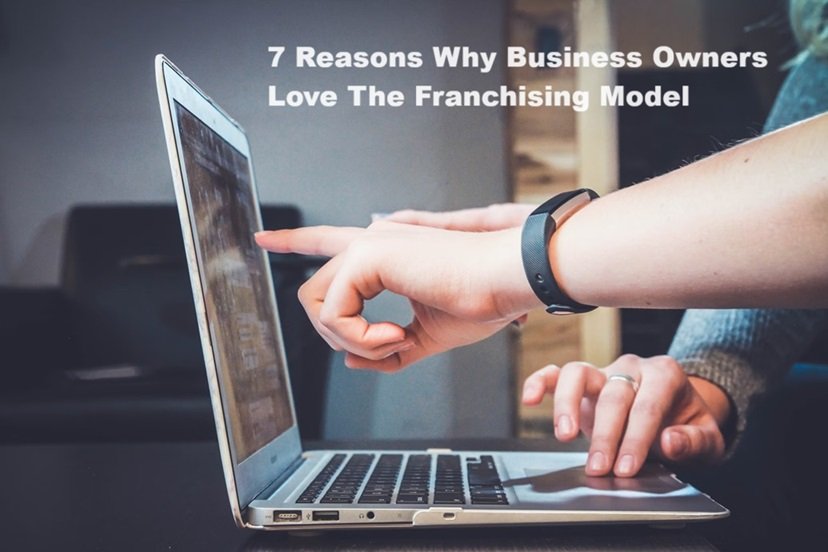Introduction
In the dynamic world of business, the franchising model has emerged as a powerful strategy for growth and expansion. Many business owners favor franchising for its unique advantages that balance risk, reward, and operational efficiency. Here are 7 Reasons Why Business Owners Love The Franchising Model is beloved by entrepreneurs and business owners alike.
- Rapid Expansion
One of the most significant advantages of franchising is the ability to expand quickly without the need for substantial capital investment. Unlike opening company-owned locations, which require significant funding and resources, franchising allows business owners to leverage the investment of franchisees. Each new franchisee funds their own location, enabling the brand to grow rapidly across different regions and markets.
- Reduced Risk
Franchising effectively spreads the risk between the franchisor and the franchisee. While the franchisee assumes the financial risks associated with setting up and running the new location, the franchisor benefits from the expansion without directly bearing those costs. This shared risk model makes franchising an attractive option for business owners who want to scale their operations with minimal financial exposure.
- Streamlined Operations
Franchising ensures a high level of standardization across all locations. Franchisors provide franchisees with a proven business model, comprehensive training, and detailed operational guidelines. This consistency helps maintain the brand’s reputation and ensures that customers receive the same quality of products and services regardless of which franchise location they visit.
- Increased Brand Presence
With each new franchise location, the brand gains greater visibility and market presence. This expanded footprint helps build brand recognition and loyalty among consumers. The more locations a brand has, the more familiar it becomes to potential customers, enhancing its market position and competitive edge.
- Motivated Franchisees
Franchisees are typically highly motivated because they have a personal financial stake in the success of their business. This level of commitment often translates to better performance, higher customer satisfaction, and more successful operations compared to company-owned locations managed by employees. Franchisees are driven to succeed, as their financial well-being is directly tied to the profitability of their franchise.
- Ongoing Revenue Streams
Franchisors benefit from continuous revenue streams through franchise fees, royalties, and other financial contributions from franchisees. These revenues provide a steady income that can be reinvested into the business for further development and support. The ongoing nature of these payments ensures that franchisors have a reliable source of income in addition to profits from any company-owned locations.
- Leverage Local Expertise

Franchisees often bring valuable local market knowledge and expertise to the table. They understand the nuances of their local culture, customer preferences, and competitive landscape. This localized insight can lead to better business decisions and more effective marketing strategies, ultimately contributing to the success of the franchise in that area.
Frequently Asked Questions (FAQ) about Franchising
7 Reasons Why Business Owners Love The Franchising Model
1. What is franchising?
Franchising is a business model where a franchisor grants the rights to a franchisee to operate a business using the franchisor’s brand, products, and operational methods. The franchisee typically pays an initial franchise fee and ongoing royalties.
2. How does franchising benefit the franchisor?
Franchising allows franchisors to expand their brand quickly and with less financial risk. Franchisors benefit from the franchise fees and ongoing royalties, while franchisees assume the costs and risks associated with opening and operating new locations.
3. What are the main responsibilities of a franchisor?
A franchisor’s main responsibilities include developing the franchise system, providing training and support to franchisees, maintaining brand standards, and ensuring consistent quality across all franchise locations.
4. What does a franchisee gain from franchising?
A franchisee gains access to an established brand, a proven business model, comprehensive training, and ongoing support from the franchisor. This reduces the risks associated with starting a new business and increases the chances of success.
5. What is the initial franchise fee?
The initial franchise fee is a one-time payment made by the franchisee to the franchisor for the rights to operate a franchise. This fee covers the cost of training, initial setup, and the use of the brand name and business model. if you need capital to afford them. you can borrow from licensed money lender Singapore or your country of residence.
6. What are royalties in franchising?
Royalties are ongoing payments made by the franchisee to the franchisor, usually calculated as a percentage of the franchise’s gross sales. These payments help fund the franchisor’s continued support and development of the franchise system.
7. How do franchisors support franchisees?
Franchisors support franchisees through initial training, ongoing operational support, marketing and advertising assistance, product development, and access to a network of other franchisees. This comprehensive support system helps franchisees succeed.
8. Can franchisees make their own business decisions?
While franchisees have some autonomy in managing their day-to-day operations, they must adhere to the franchisor’s established guidelines and standards to maintain consistency and protect the brand’s reputation. Major decisions typically require approval from the franchisor.
9. What should potential franchisees consider before investing?
Potential franchisees should consider the franchise’s reputation, the level of support provided, initial and ongoing costs, the franchise agreement terms, the profitability of existing franchises, and their own ability to follow the franchisor’s system.
10. How long does a franchise agreement last?
The duration of a franchise agreement varies but typically ranges from 5 to 20 years. The agreement may include options for renewal, subject to certain conditions and fees.
11. Can a franchisee sell their franchise?
Yes, franchisees can usually sell their franchise, but the sale often requires approval from the franchisor. The new franchisee must meet the franchisor’s qualifications and agree to the existing terms of the franchise agreement.
12. What happens if a franchisee fails?
If a franchisee fails to meet the franchisor’s standards or the business becomes unprofitable, the franchise agreement may be terminated. The specifics of what happens in case of failure are outlined in the franchise agreement and can include conditions for termination, sale, or transfer of the franchise.
Conclusion
The franchising model offers a strategic pathway for business owners looking to grow their brand efficiently and effectively. By leveraging the investment and motivation of franchisees, business owners can expand rapidly, reduce risk, ensure operational consistency, and benefit from continuous revenue streams. Additionally, the local expertise of franchisees helps tailor the business to meet regional demands, further enhancing its success. These advantages make franchising a preferred model for many entrepreneurs aiming to scale their businesses while maintaining high standards and profitability.



